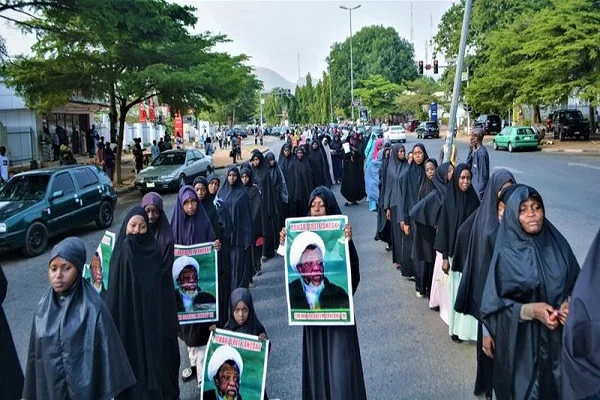On July 26, 2021, Nigeria’s Kaduna state government filed terrorism and treasonable felony charges against Shia cleric Ibrahim Zakzaky at the Federal High Court in Kaduna, just two days before a state court acquitted him and his wife, Zeenah Ibrahim, of murder charges on July 28, per Kaduna state prosecutor Dari Bayero. The earlier case, tied to a soldier’s death in a 2015 clash in Zaria, collapsed due to insufficient evidence, per Amnesty International.
Context of the Charges
Zakzaky, leader of the Islamic Movement in Nigeria (IMN), has advocated for an Iranian-style Islamic revolution since the 1979 Iranian Revolution, clashing with Nigeria’s Sunni-majority and secular authorities, per International Crisis Group.
The new charges followed a violent 2015 military raid on Zakzaky’s Zaria residence, killing over 300 IMN members, including three of his sons, and injuring Zakzaky and his wife, per Human Rights Watch. A 2016 court ordered their release, but authorities detained them until 2021, ignoring the ruling, per UN records.
Judicial and Political Tensions
Prosecutor Bayero claimed Zakzaky refused court papers while detained, delaying proceedings until September 2021 due to a court holiday, per CTG statements. IMN spokesperson Ibrahim Musa called the acquittal a “victory against persecution,” but Zakzaky’s supporters feared re-arrest, per Al Jazeera. Critics, including lawyer Femi Falana, argued the charges were a desperate move to block Zakzaky’s release, possibly driven by Sunni-Shia tensions and government fear of his influence, per Press TV.
Critical Analysis
The timing of the charges, filed before Zakzaky’s acquittal, suggests political motives, possibly targeting his Shia advocacy in a Sunni-dominated region, per Middle East Eye. Nigeria’s 50% Muslim population, with Shias as a small minority, faces sectarian divides, exacerbated by the 2015 Zaria massacre, per USCIRF. The government’s failure to investigate the massacre or comply with the 2016 release order raises questions about judicial fairness, per Amnesty International. The charges may also reflect efforts to curb Zakzaky’s estimated 3 million IMN followers, seen as a threat to state control, per ICG.
Broader Implications
The case highlights Nigeria’s struggle with religious pluralism and state authority. Zakzaky’s detention sparked protests in Abuja, with dozens killed in 2019 clashes, per TRT World. With 70% of Nigeria’s 180 million people living in poverty, per World Bank, public distrust fuels unrest, complicating governance. The lack of accountability for the 2015 killings and ongoing charges risks further alienating the Shia minority, per UNOCHA.
Path Forward
To address tensions, Nigeria must ensure transparent judicial processes and investigate the Zaria massacre, per Amnesty International. Engaging communities to bridge sectarian divides and upholding court rulings could restore trust. Zakzaky’s case underscores the need for equitable treatment of religious minorities to prevent further conflict in Nigeria’s volatile north.






